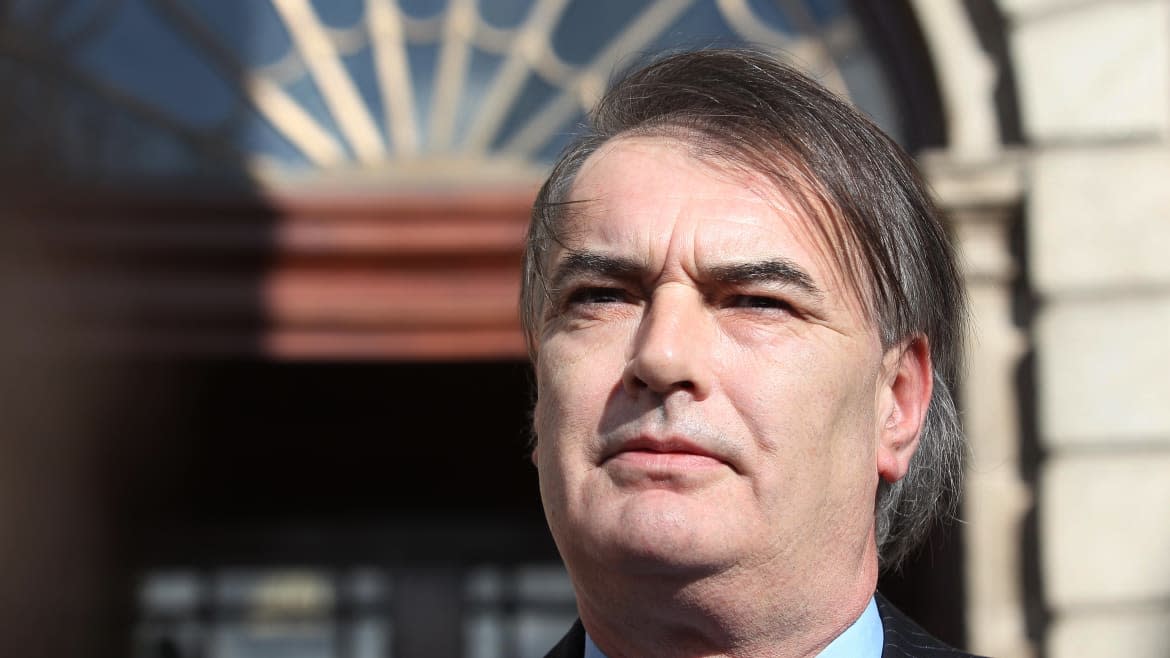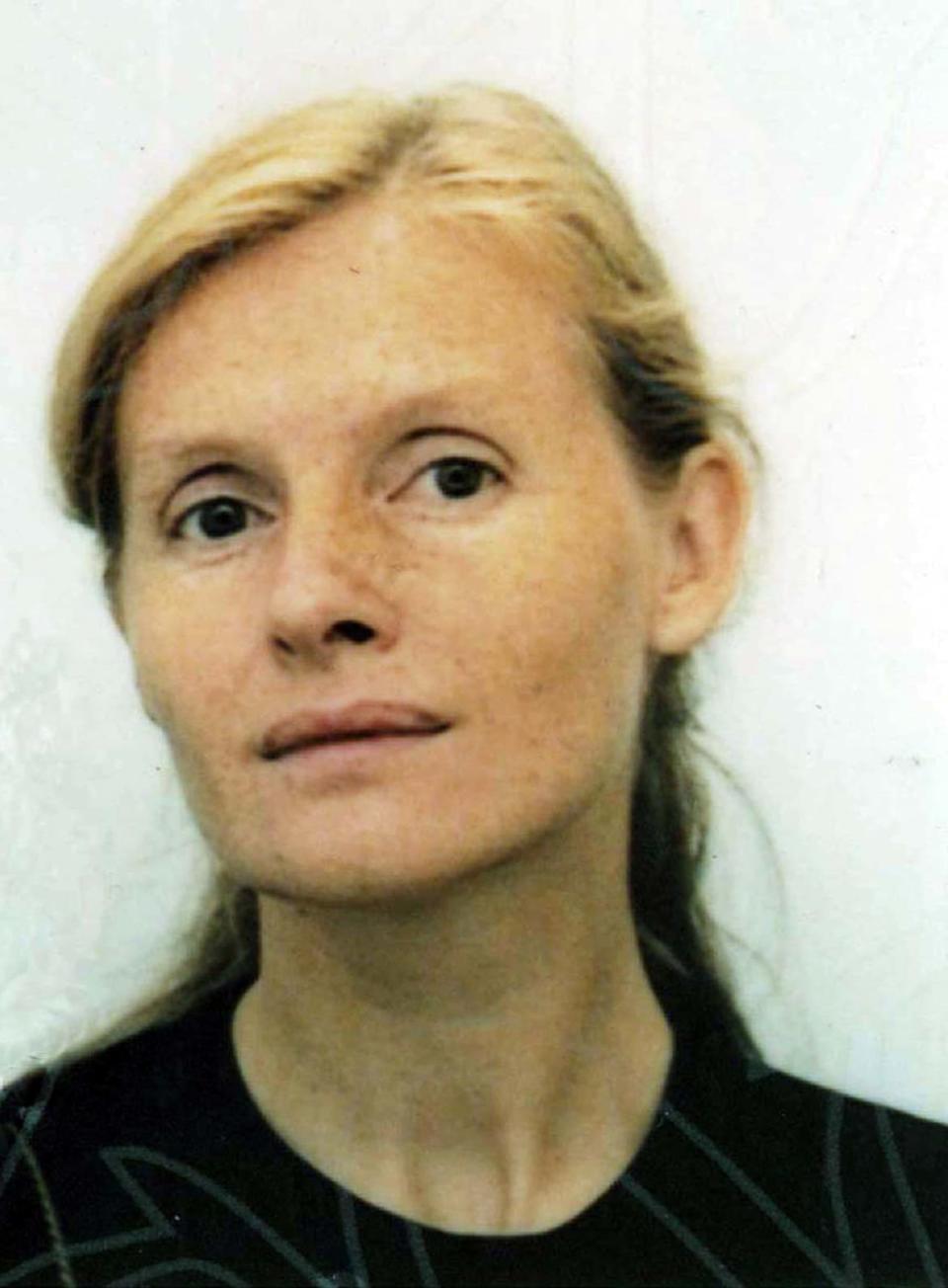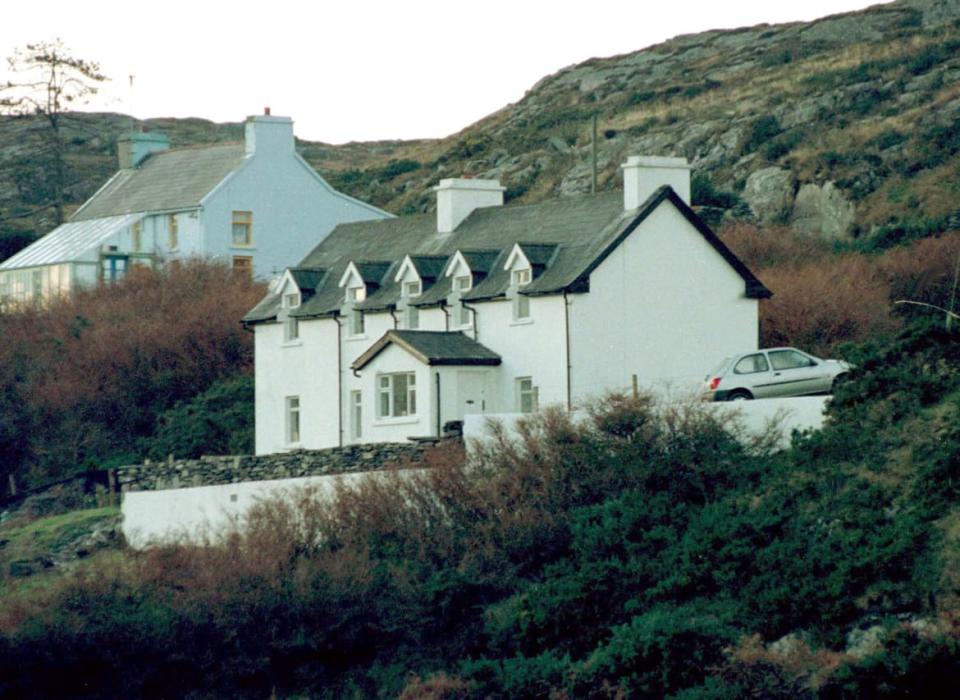French Court Convicts British Man in One of the Most Brutal Killings in Recent Irish History

NICE, France—A French court found a former British journalist guilty in absentia Friday of bludgeoning a French film producer in one of the most brutal, haunting, and long-unsolved slayings in recent Irish history.
Ian Bailey, 62, a British citizen who’s lived in Ireland since 1991, was sentenced to 25 years in prison by a panel of three judges in Paris Criminal Court after a three-day trial. The court says he bashed in the skull of 39-year-old Sophie Toscan du Plantier in 1996 while she ran for her life on the dark, isolated West Cork moors in the middle of the night just before Christmas.

Sophie Toscan du Plantier, who was found battered to death in a remote area of West Cork, Ireland, December 24.
But much of Ireland’s not so sure they got the real murderer. It’s even less clear if Irish officials will hand him over to French authorities, with whom they’ve long been feuding.
Bailey, who still lives 35 minutes by foot from the murder scene in Schull, has always maintained his innocence despite a past history of beating his longtime girlfriend so badly he tore part of her lip off.
“I was fully expecting this!” Bailey said in a strangely jovial telephone interview with The Daily Beast after the verdict. “I thought I might get 40 years. Don’t worry. I’m a poet and philosopher you know. I’m in a John Wayne state of mind. I’m rugged and tough. I remain calm in the eye of a hurricane, I do.”
Friday’s verdict was met with some contempt in Ireland, where Bailey was arrested in 1997 and again in 1998 in connection with the du Plantier case but never charged. No forensic evidence was found linking him to the murder. Irish and French police detectives have warred over the case for years.
Bailey, his lawyer, and some Irish police claim the Paris case was a show trial to satisfy the well-connected Parisian families of du Plantier and her husband, Daniel Toscan du Plantier, a prominent French film producer who died in 2003. (He remarried two years after du Plantier’s death.)
The Tale of The Beautiful French Filmmaker Bludgeoned in Ireland
Most of the evidence presented in the Paris courtroom, they said, had originally been gathered by Irish detectives but ultimately found to be flawed.
“This so-called criminal trial was a rubber-stamping exercise on the part of French authorities,” Bailey’s longtime attorney Frank Buttimer told The Daily Beast.
“There were no witnesses of any consequence. They relied on tainted evidence gathered by Irish police. Two psychiatrists who have never met Mr. Bailey handed in statements about his character. This was Alice in Wonderland justice and an insult to the Irish legal system—which by the way is recognized internationally by the rest of the world.”
Among the evidence heard at the Paris trial was testimony by a local woman, Marie Farrell, who placed Bailey near the scene at the time of the murder but later retracted her statements, saying she had been pressured by Irish police into giving false evidence.
Sophie’s relatives, many of whom attended the trial, say justice was finally served. French authorities are now asking—for the third time—for Ireland to extradite Bailey to France.
“We won after 12 years,” Sophie’s uncle Jean Pierre Gazeau, 73, told The Daily Beast. “We sought the truth and we found it. We hope Ireland will respect today’s decision. They are no longer protecting a suspect, they are protecting a murderer, an assassin.”
Bailey didn’t attend the trial or have a lawyer present but he has fought back against the accusations against him relentlessly over the years. It is unclear if Irish officials will extradite him but he has vowed to fight it if they do.
“I used to get depressed but life has toughened me up,” Bailey said. “I live with the fear everyday that I will be taken to France but if I go down I will go down like Nelson with guns blazing.”
Bailey said he tried to ignore the Paris trial this week but said what he knew of it was “nonsense.” He said he spends his time sitting in his “wood chamber,” or shed, where he writes poetry, reads from The Flame by Leonard Cohen, and plays a didgeridoo or his goatskin drum. He has self-published one collection of poetry and hopes to publish more. “I’m writing like never before,” he said.
He believes Sophie was either killed by an Irish police officer who died in 2002 (a popular conspiracy theory in some Irish circles) or else by an assassin hired by her husband who wanted to collect a life insurance premium on her.
When The Daily Beast asked Bailey if he knew Sophie or ever met her, he answered in French twice.
“Absolument pas,” he said, meaning no. He said he only knew of Sophie because he occasionally did gardening for her neighbor. In Ireland, Bailey largely overshadows Sophie, who was found battered almost beyond recognition after fleeing her desolate Irish farmhouse in her pajamas.
Du Plantier’s bloodied body was found by her neighbor on the morning of Dec. 23, 1996 on the long dirt lane near the gate below her house in the middle of the moors.
She apparently had crashed through briars and barbed wire in a desperate attempt to outrun her killer. She’d been beaten so savagely with a heavy concrete block and a flat rock that her skull was crushed and the back of her head bashed in.

"General view of the house of French woman Sophie Toscan du Plantier in County Cork December 24, 1996. The body of Sophie Toscan du Plantier was found with head injuries close to the house December 23, 1996. December 23, 1996. Although not ruling out murder, the authorities are awaiting the arrival of State Pathologist Dr. John Harbisson who will carry out a Post Mortem to ascertain the cause of Death. REUTERS/Stringer (IRELAND) - PM1E47H0ZHG01"
Bailey’s been a suspect in the case almost since the start but sometimes seemed to revel in the notoriety. Far from keeping a low profile, Bailey has continually made provocative, jokey and often shocking comments about the case, both complicating the investigation and keeping himself in the spotlight.
Irish filmmaker Jim Sheridan is working on a documentary about the case, Netflix may do one as well, and Ireland’s first true crime podcast, “West Cork,” focused on the murder in 2018.
Bailey cast himself in the worst possible light back in 2003 when he sued several Irish and British newspapers for libel because they characterized him as a murder suspect. But under a long cross-examination, it came out that Bailey was indeed guilty of appalling violence—against his longtime partner, Welsh artist Jules Thomas.
He admitted that he beat Thomas so severely three times between 1993 and 2001 that she was once left moaning in the fetal position with part of her lip torn off and clumps of hair missing. Bailey has always said his attacks on Thomas were the result of drinking too much whiskey, which he has since given up.
But he once wrote about an attack on Thomas years ago, in private writings that came out during his libel case, that “I actually tried to kill her.”
Bailey and Thomas still live together and “get on” now that both have stopped drinking, he said.
“We got together in a fever,” he said of their relationship. “We’re both Welsh. Passionate. We both drank too much. If you look at Richard Burton and Elizabeth Taylor, we were a bit like them. We had that phase. I remain eternally shamed and disgraced but it was the spirits we were drinking.”
Thomas, he said, is “standing stolid” with him, both at home and in his fight to clear his name and avoid extradition to France.
Get our top stories in your inbox every day. Sign up now!
Daily Beast Membership: Beast Inside goes deeper on the stories that matter to you. Learn more.

